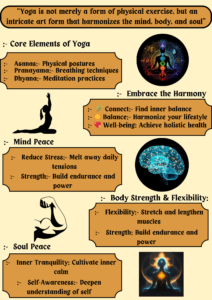soseyv9b28_kartik
BegginerResources & Suggestions
Mains Answer Writing Latest Articles
Daily Answer Writing Practice Questions (18 April 2025)
Do you agree with the claim that indecision and risk aversion are prevalent issues in Indian bureaucracy? Support your answer with logical reasoning. (150 words) ऐसा कहा जाता है कि भारतीय नौकरशाही में अनिर्णय और जोखिम से बचने की प्रवृत्ति ...
Strengthening India’s Cyber Defence
Rising Threats Digital Era Challenges: 2024 marks a significant rise in digital threats, particularly from AI and cyberattacks. Key Issues: Disinformation campaigns. Cyber fraud affecting daily life. Current Major Cyber Threats Ransomware Rampage: Over 48,000 instances of WannaCry ransomware detected ...
भारत की साइबर सुरक्षा
बढ़ते खतरे कृत्रिम बुद्धिमत्ता (AI) और साइबर हमले: 2024 में AI और साइबर हमलों के खतरे में वृद्धि। महत्वपूर्ण अवसंरचना पर हमले: डिजिटल हमलों और दुष्प्रचार अभियानों की संभावना बढ़ी है। प्रमुख साइबर खतरें रैनसमवेयर का प्रकोप: 48,000 से अधिक ...

Discuss the statement, "Yoga is not merely a form of physical exercise, but an intricate art form that harmonizes the mind, body, and soul." Examine its cultural impact, both within India and around the world, as a spiritual and well-being practice.
“Yoga is not merely a form of physical exercise, but an intricate art form that harmonizes the mind, body, and soul.” Yoga originated in ancient India over 5,000 years ago, first referenced in the Vedas and Upanishads. Sage Patanjali formalized it around 200 BCE in his Yoga Sutras, outlining the eigRead more
“Yoga is not merely a form of physical exercise, but an intricate art form that harmonizes the mind, body, and soul.”
Yoga originated in ancient India over 5,000 years ago, first referenced in the Vedas and Upanishads. Sage Patanjali formalized it around 200 BCE in his Yoga Sutras, outlining the eightfold path (Ashtanga Yoga), including ethical guidelines, postures, breath control, and meditation. Developed by Indian sages, yoga is now a global practice known for its holistic health benefits.
Benefits of Yoga:
Core Elements of Yoga:
- Asanas: Physical postures
- Pranayama: Breathing techniques
- Dhyana: Meditation practices

See lessDiscuss the statement, "Yoga is not merely a form of physical exercise, but an intricate art form that harmonizes the mind, body, and soul." Examine its cultural impact, both within India and around the world, as a spiritual and well-being practice.
“Yoga is not merely a form of physical exercise, but an intricate art form that harmonizes the mind, body, and soul.” Yoga originated in ancient India over 5,000 years ago, first referenced in the Vedas and Upanishads. Sage Patanjali formalized it around 200 BCE in his Yoga Sutras, outlining the eigRead more
“Yoga is not merely a form of physical exercise, but an intricate art form that harmonizes the mind, body, and soul.”
Yoga originated in ancient India over 5,000 years ago, first referenced in the Vedas and Upanishads. Sage Patanjali formalized it around 200 BCE in his Yoga Sutras, outlining the eightfold path (Ashtanga Yoga), including ethical guidelines, postures, breath control, and meditation. Developed by Indian sages, yoga is now a global practice known for its holistic health benefits.
Benefits of Yoga:
Core Elements of Yoga:
- Asanas: Physical postures
- Pranayama: Breathing techniques
- Dhyana: Meditation practices
See lessDiscuss the statement, "Yoga is not merely a form of physical exercise, but an intricate art form that harmonizes the mind, body, and soul." Examine its cultural impact, both within India and around the world, as a spiritual and well-being practice.
"Yoga is not merely a form of physical exercise, but an intricate art form that harmonizes the mind, body, and soul." Yoga originated in ancient India over 5,000 years ago, first referenced in the Vedas and Upanishads. Sage Patanjali formalized it around 200 BCE in his Yoga Sutras, outlining the eigRead more
“Yoga is not merely a form of physical exercise, but an intricate art form that harmonizes the mind, body, and soul.”
Yoga originated in ancient India over 5,000 years ago, first referenced in the Vedas and Upanishads. Sage Patanjali formalized it around 200 BCE in his Yoga Sutras, outlining the eightfold path (Ashtanga Yoga), including ethical guidelines, postures, breath control, and meditation. Developed by Indian sages, yoga is now a global practice known for its holistic health benefits.
Benefits of Yoga:
Core Elements of Yoga:
See lessDiscuss the statement, "Yoga is not merely a form of physical exercise, but an intricate art form that harmonizes the mind, body, and soul." Examine its cultural impact, both within India and around the world, as a spiritual and well-being practice.


See less